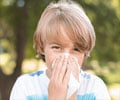Discover how Omalizumab, a drug initially for asthma and hives, now offers protection against severe food allergy reactions.

Omalizumab for the Treatment of Multiple Food Allergies
Go to source).
New Hope for Kids with Food Allergies
“I’m excited that we have a promising new treatment for multifood allergic patients. This new approach showed really great responses for many of the foods that trigger their allergies,” said the study’s senior author, Sharon Chinthrajah, MD, associate professor of medicine and of pediatrics, and the acting director of the Sean N. Parker Center for Allergy and Asthma Research at Stanford Medicine. “Patients impacted by food allergies face a daily threat of life-threatening reactions due to accidental exposures,” said the study’s lead author, Robert Wood, MD, professor of pediatrics at Johns Hopkins University School of Medicine. “The study showed that omalizumab can be a layer of protection against small, accidental exposures.”‘Omalizumab, an FDA-approved drug, shows promise in preventing severe allergic reactions in children with food allergies. #omalizumab #foodallery #childrenshealth #medindia’





Omalizumab, which the Food and Drug Administration originally approved to treat diseases such as allergic asthma and chronic hives, binds to and inactivates the antibodies that cause many kinds of allergic disease. All study participants were severely allergic to peanuts and at least two other foods. After four months of monthly or bimonthly omalizumab injections, two-thirds of the 118 participants receiving the drug safely ate small amounts of their allergy-triggering foods. Notably, 38.4% of the study participants were younger than 6 years, an age group at high risk from accidental ingestions of allergy-triggering foods.
Food allergies affect about 8% of children and 10% of adults in the United States. People with severe allergies are advised to fully avoid foods containing their allergy triggers, but common allergens such as peanuts, milk, eggs, and wheat can be hidden in so many places that everyday activities such as attending parties and eating in restaurants can be challenging.
“Food allergies have significant social and psychological impacts, including the threat of allergic reactions upon accidental exposures, some of which can be life-threatening,” Chinthrajah said. Families also face economic impacts from purchasing more expensive foods to avoid allergens, she added.
In the best available treatment for food allergies, called oral immunotherapy, patients ingest tiny, gradually increasing doses of allergy-triggering foods under a doctor’s supervision to build tolerance. But oral immunotherapy itself can trigger allergic responses, desensitization to allergens can take months or years, and the process is especially lengthy for people with several food allergies, as they are usually treated for one allergy at a time.
Advertisement
Did You Know?
Common food allergens that cause 90% of allergic reactions in kids include– milk, eggs, peanuts, soy, wheat, tree nuts (such as walnuts and cashews), fish, shellfish (such as shrimp), and sesame.
Omalizumab Injection's Breakthrough for Allergies
The study included 177 children with at least three food allergies each, of whom 38% were 1 to 5 years old, 37% were 6 to 11 years old, and 24% were 12 or older. Participants’ severe food allergies were verified by skin-prick testing and food challenges; they reacted to less than 100 milligrams of peanut protein and less than 300 milligrams of each other food.Upon re-testing, 79 patients (66.9%) who had taken omalizumab could tolerate at least 600 mg of peanut protein, the amount in two or three peanuts, compared with only four patients (6.8%) who had the placebo. Similar proportions of patients showed improvement in their reactions to the other foods in the study.
About 80% of patients taking omalizumab were able to consume small amounts of at least one allergy-triggering food without inducing an allergenic reaction, 69% of patients could consume small amounts of two allergenic foods and 47% could eat small amounts of all three allergenic foods.
Omalizumab was safe and did not cause side effects, other than some instances of minor reactions at the site of injection. This study marks the first time its safety has been assessed in children as young as 1. More research is needed to further understand how omalizumab could help people with food allergies, the researchers said.
“We have a lot of unanswered questions: How long do patients need to take this drug? Have we permanently changed the immune system? What factors predict which people will have the strongest response?” Chinthrajah said. “We don’t know yet.”
The team is planning studies to answer these questions and others, such as finding what type of monitoring would be needed to determine when a patient gains meaningful tolerance to an allergy-triggering food.
Many patients who have food allergies also experience other allergic conditions treated by omalizumab, Chinthrajah noted, such as asthma, allergic rhinitis (hay fever and allergies to environmental triggers such as mold, dogs or cats, or dust mites), or eczema. “One drug that could improve all of their allergic conditions is exactly what we’re hoping for,” she said.
The drug could be especially helpful for young children with severe food allergies, she added because they tend to put things in their mouths and may not understand the dangers their allergies pose, she added.
The drug could also make it safer for community physicians to treat food allergy patients since it cannot trigger dangerous allergic reactions, as oral immunotherapy sometimes does. “This is something that our food allergy community has been waiting a long time for,” Chinthrajah said. “It’s an easy drug regimen to implement in a medical practice, and many allergists are already using this for other allergic conditions.”
Reference:
- Omalizumab for the Treatment of Multiple Food Allergies - (https://www.nejm.org/doi/10.1056/NEJMoa2312382)
Source-Eurekalert















